My trip to Southeast Asia - 2008/2009 - Part 4 (LARGE post)
Here is the the fourth and final part of my S.E. Asia trip. The first parts can be found here:
Part 1
http://dgrin.com/showthread.php?t=120927
Part 2
http://dgrin.com/showthread.php?t=120930
Part 3
http://dgrin.com/showthread.php?t=120933
Philippines
San Augustin Church, Manila.
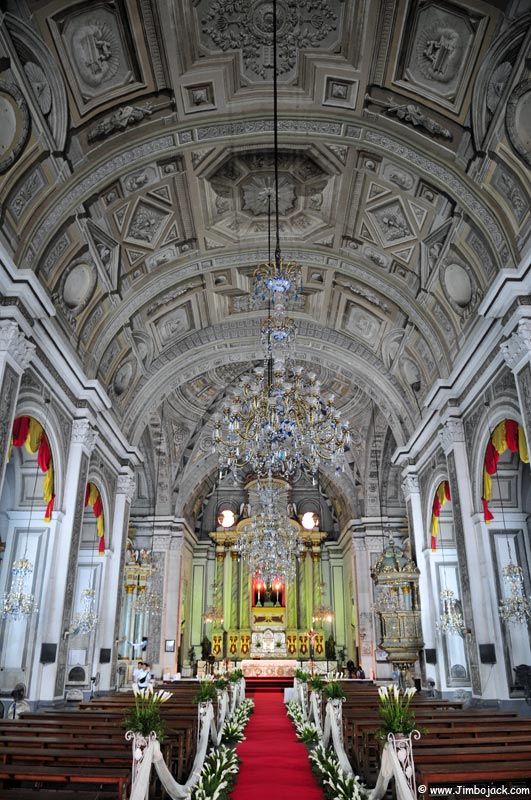
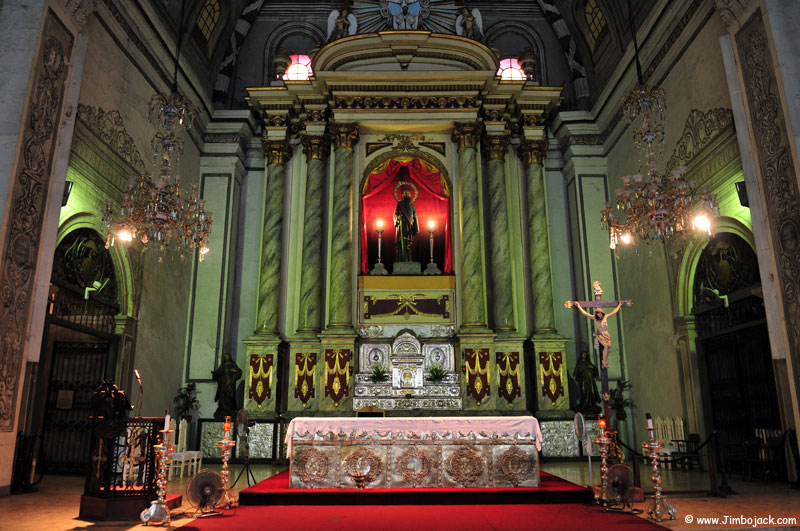
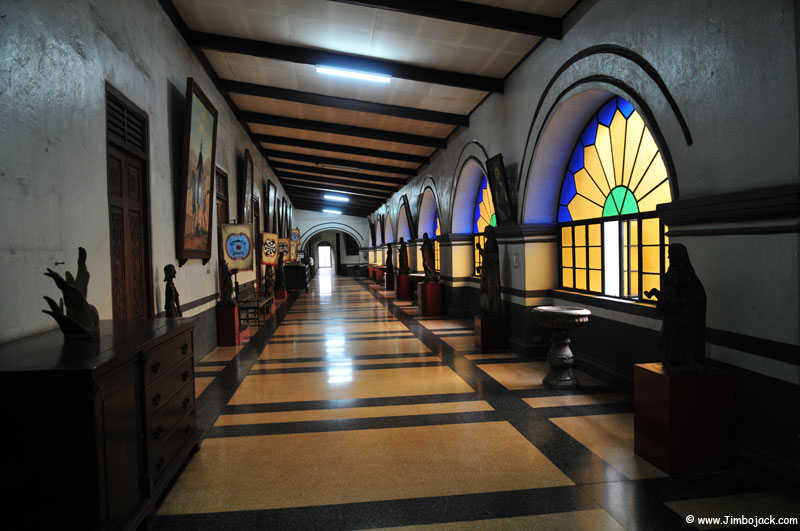
Local villager in the village of Tam-an (Near Banaue). People living here have a tradition of burying their relatives for 3 years in a coffin, then digging them up and wrapping the bones in traditional blankets. They keep the bones in their house as a form of protection. This man offered to show us his grandfather (for a fee of course), he kept him in a back room in an empty rice sack, inside it was a blanket with the bones.
At first I was very hesitant to do it, the only reason he offered to bring his grandfathers' remains is because he wanted the extra income, so before I started asking him a lot of questions about the tradition. Turns out his grandfather died near the end of World War II ("when the Japanese were here" he said), his remains have been in this house since then. I got the sense from talking to him that this really was important to him. Unfortunately, I have a feeling that to many of the next generation the remains will mostly be looked at as extra income to be gotten from tourists.
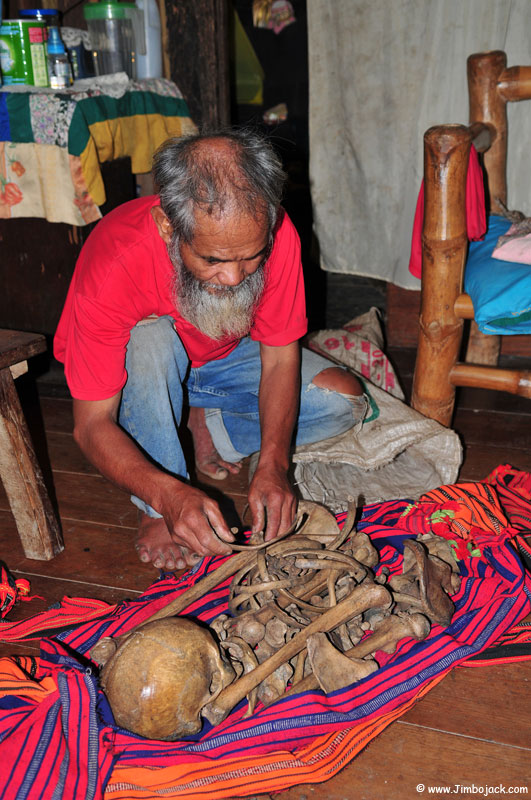
Hiking around villages near Banaue, it rained constantly the entire time we were in the area
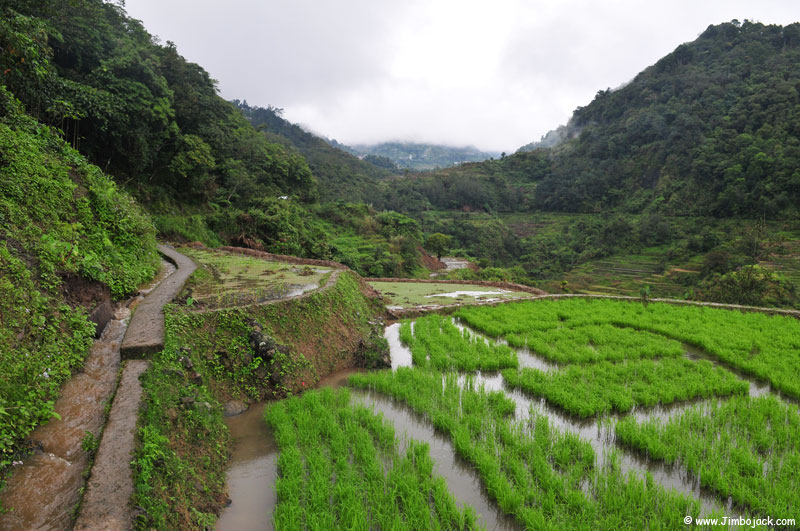
View from our hotel, Banaue
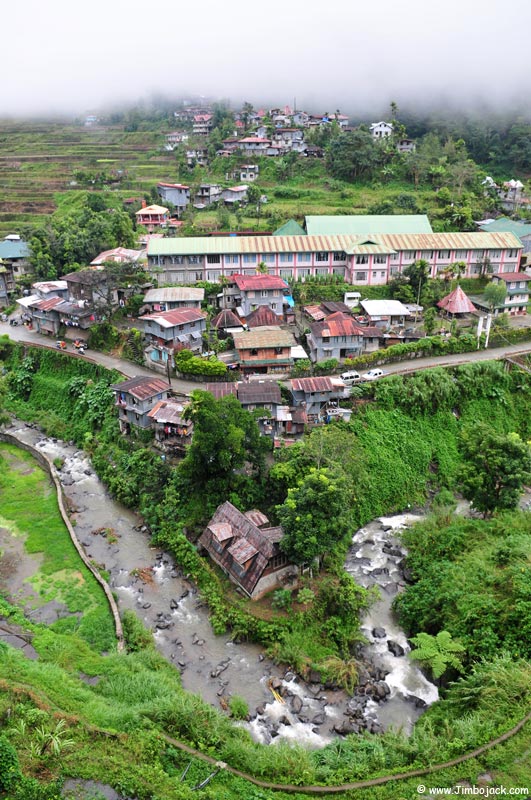
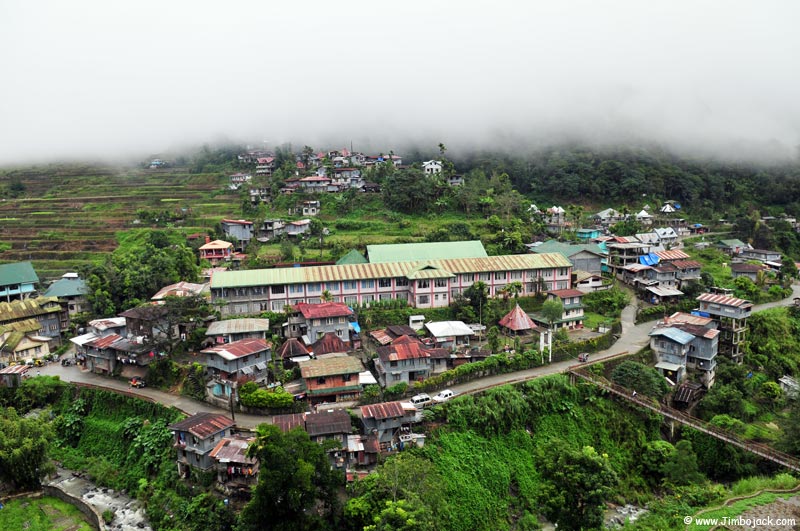
This was our Jeepney for the trip up to Batad
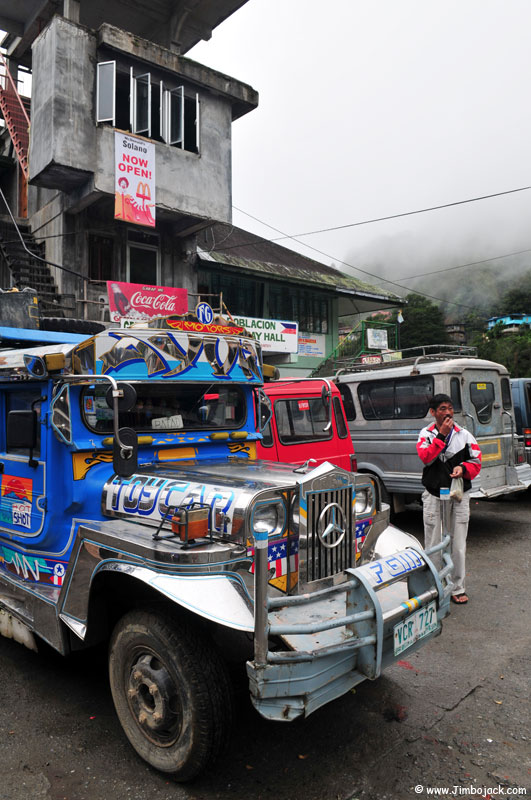
The road
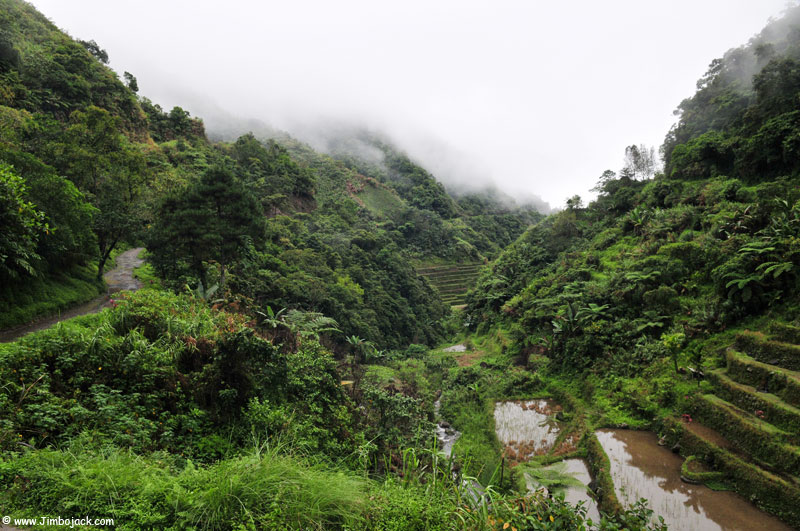
This driver thought he could go over a mudslide in a minivan, he was wrong, and blocked our way. We had to wait until the tires were changed, after a lot of pushing he decided to back down the road to a place where he could finally turn around.
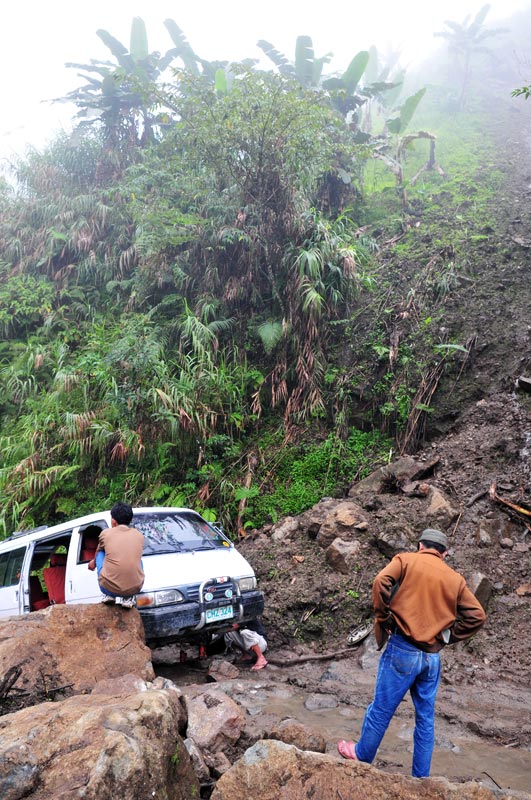
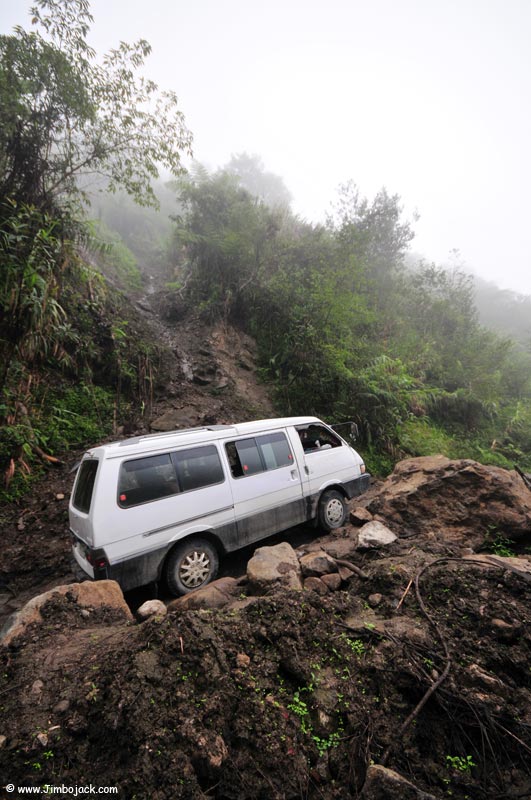
Trail down to Batad village
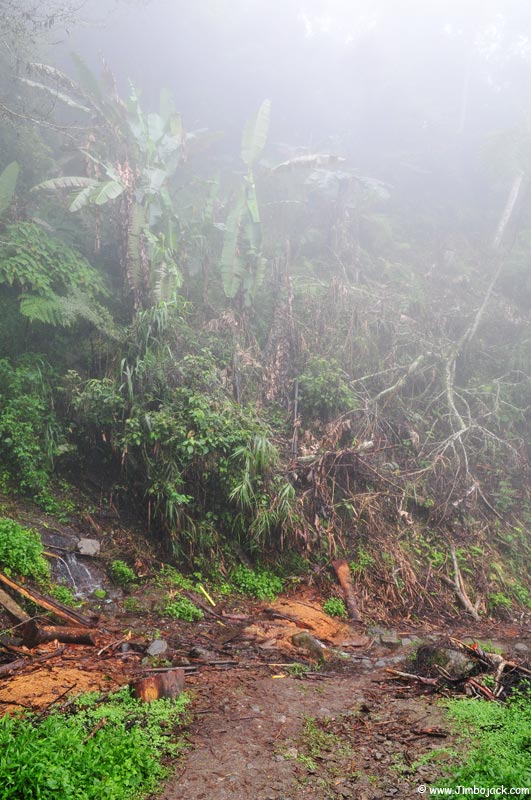
Local woman, Batad
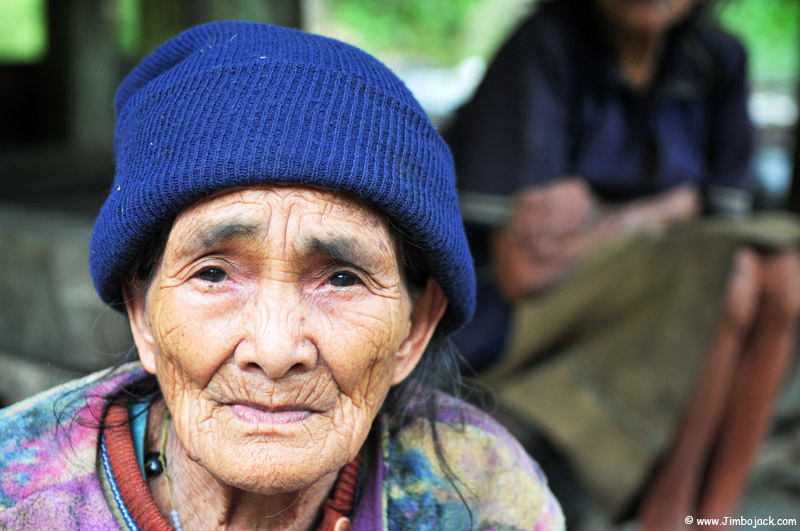
Batad
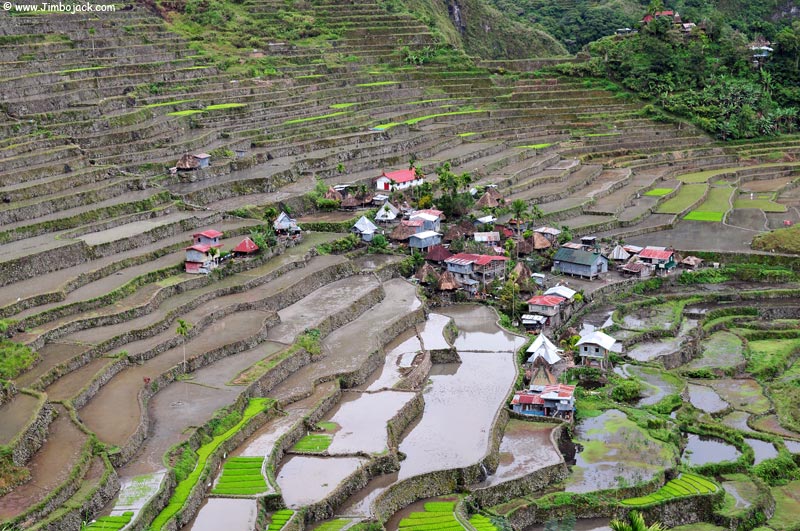
Local Man, Batad
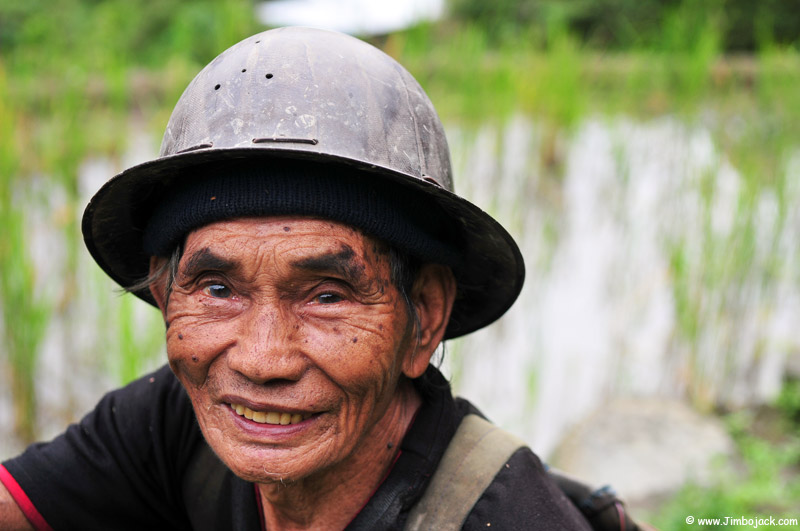
30 Meter tall Tappia waterfall, near Batad village
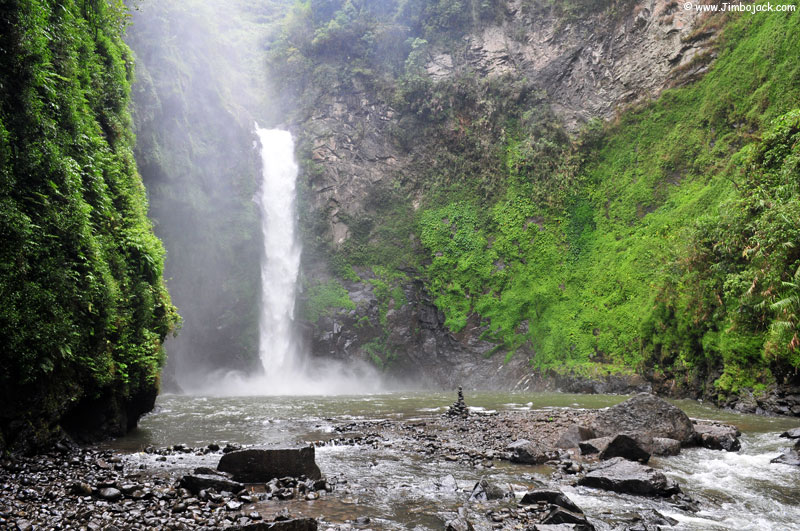
Batad rice terraces, these are of the stone-walled variety and are believed to be over 2,000 years old. They are muddy and brown since the rice planting doesn't take place until late February or March. We were here at the end of January
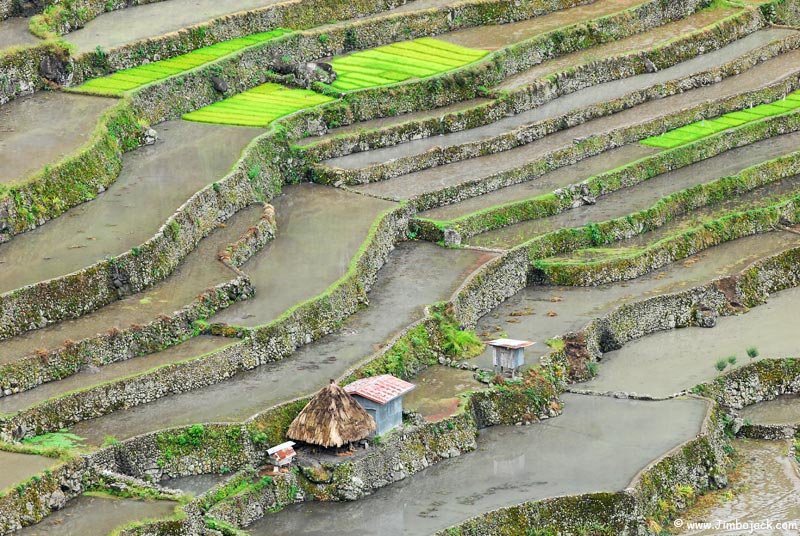
Local people, Batad
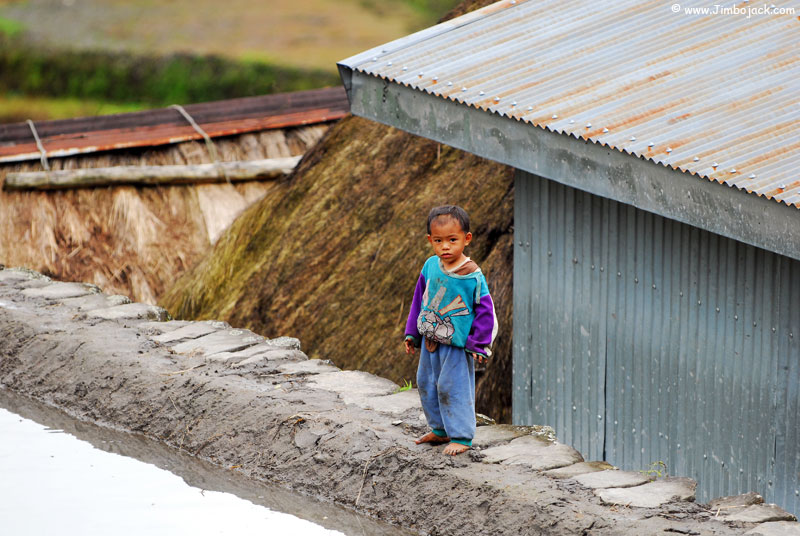
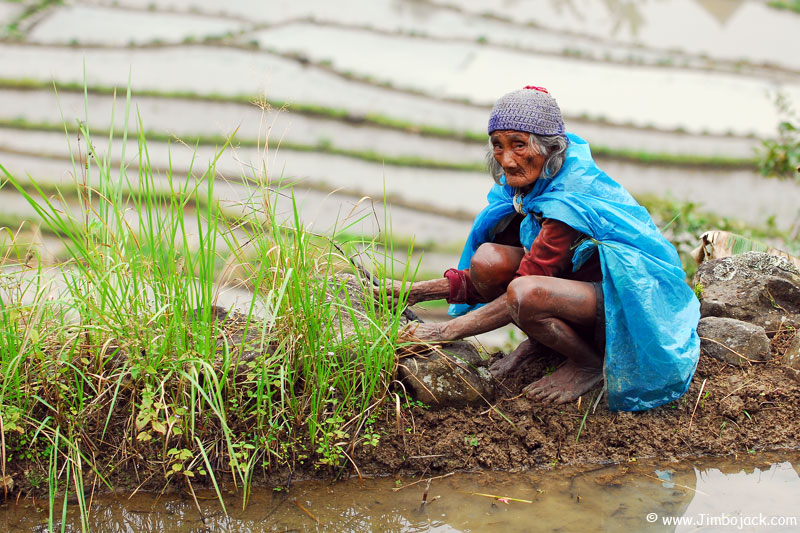
Our next Jeepney ride was also eventful, problems with the fuel pump meant it took us 7 hours to drive 120 kilometers
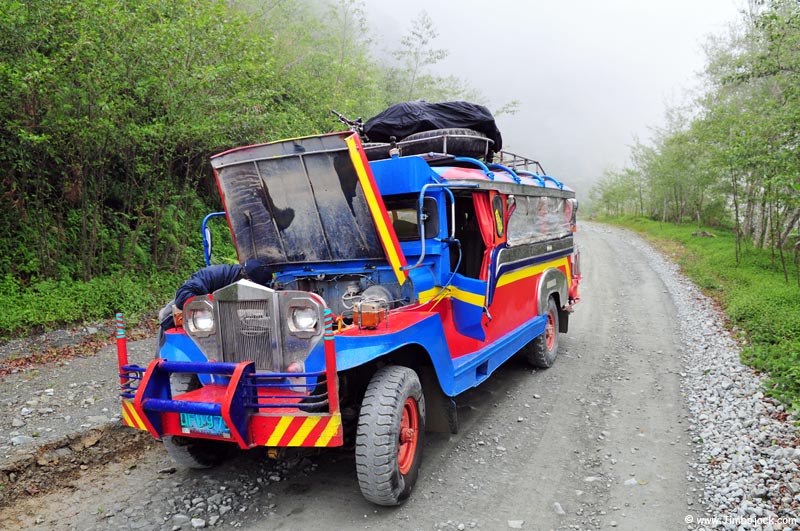
Sagada, Nothern Luzon. Unfortunately like the rest of the Philippines, Sagada has been Christianized. Some people do still keep their original animist beliefs, and a kind of a mixture of Animist/Christian traditions is still visible (although the church is working hard to stop it).
According to the traditional beliefs, locals would be buried in coffins placed in caves or hung from the side of cliffs. The oldest coffins in Sagada are believed to be in the Lumiang Burial Cave, and are over 500 years old. Traditional beliefs dictate that nobody should be buried, "instead of the dead carrying the earth, the earth should carry them". Some coffins are hung from cliff faces, the belief is that the spirit will be free to roam around. It is very expensive to be buried in this way, the spirits demand the sacrifice of 21 pigs over the course of a year (the first cannot be eaten by the family), and three times as many chickens. Some elders request to be buried this way, but their christianized children refuse to do so after their death and bury them in a normal cemetery. Unfortunately this tradition is slowly dying out. I will write a lot more about it soon
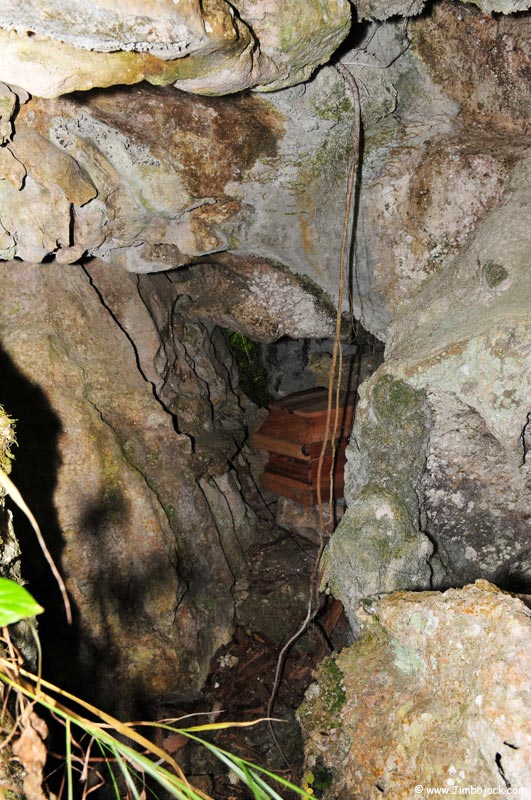
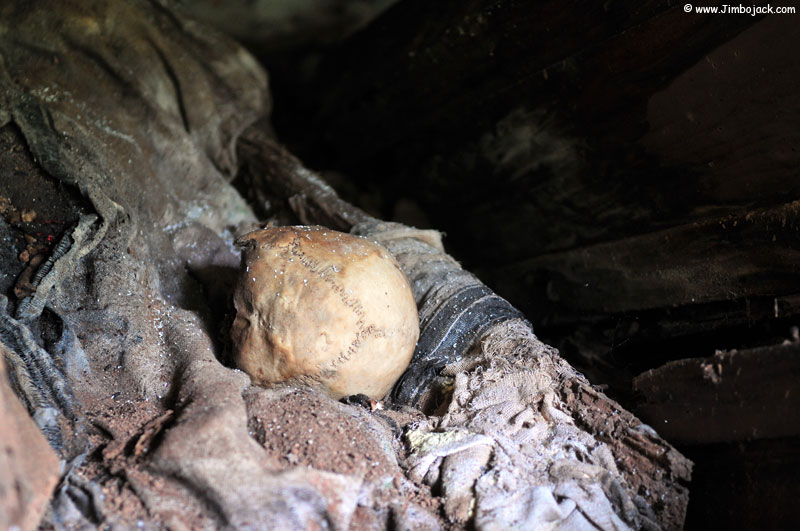
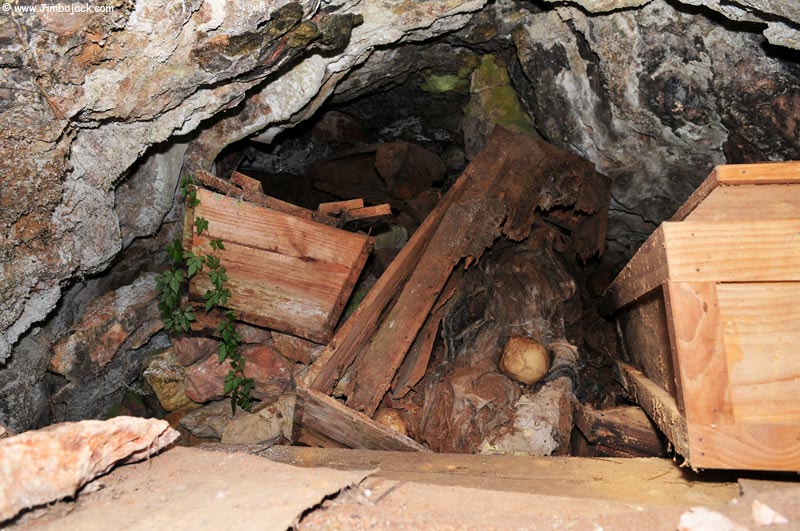
Hanging coffins, the chairs are placed there for the spirits of the deceased.
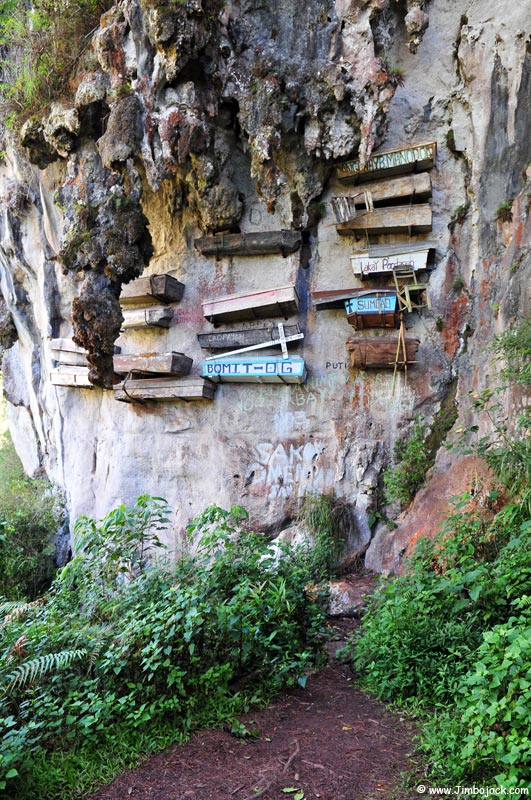
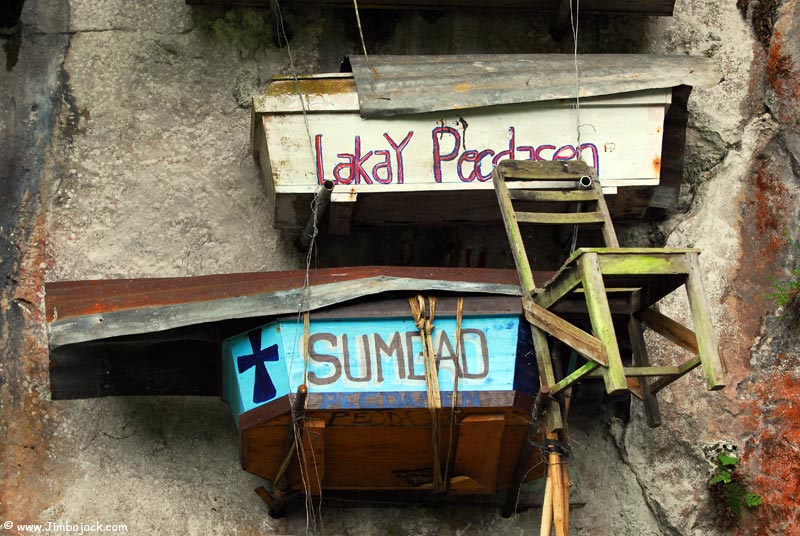
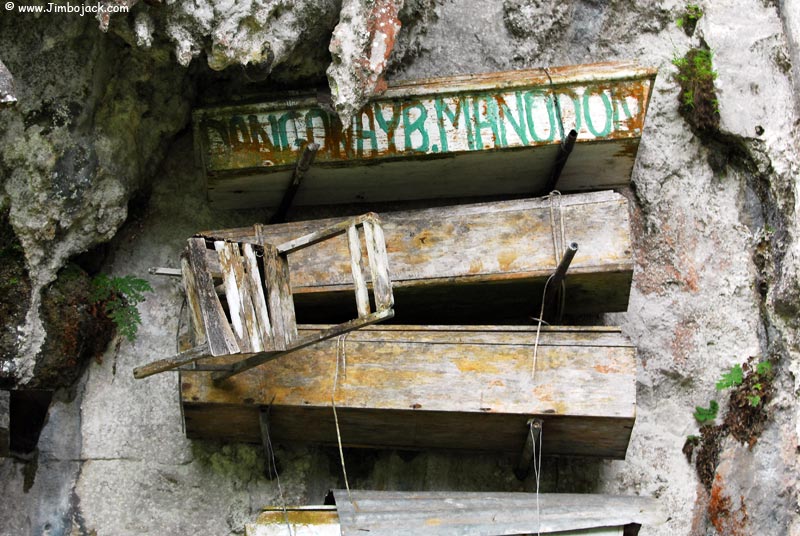
Local christian cemetery
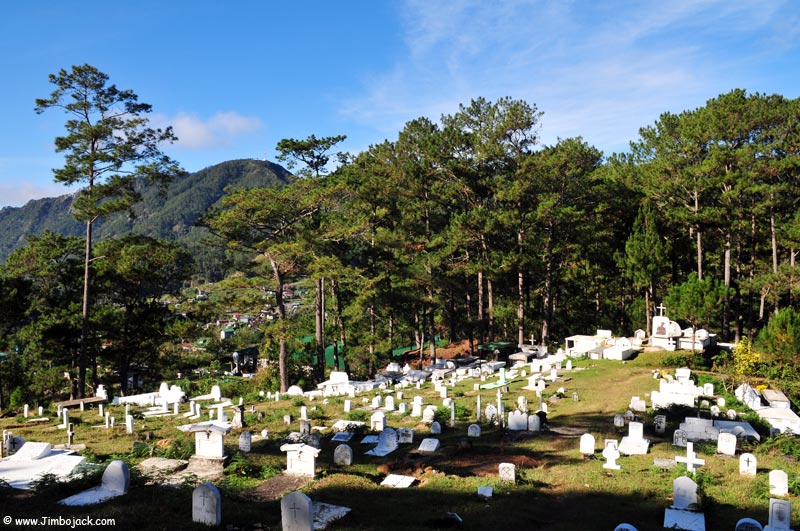
This coffin decayed over the years, as a result the bones fell out and are on the ground. Unfortunately some tourists stole the skull. Eventually the family will create a new coffin, place the remains in it and put it back in the cave
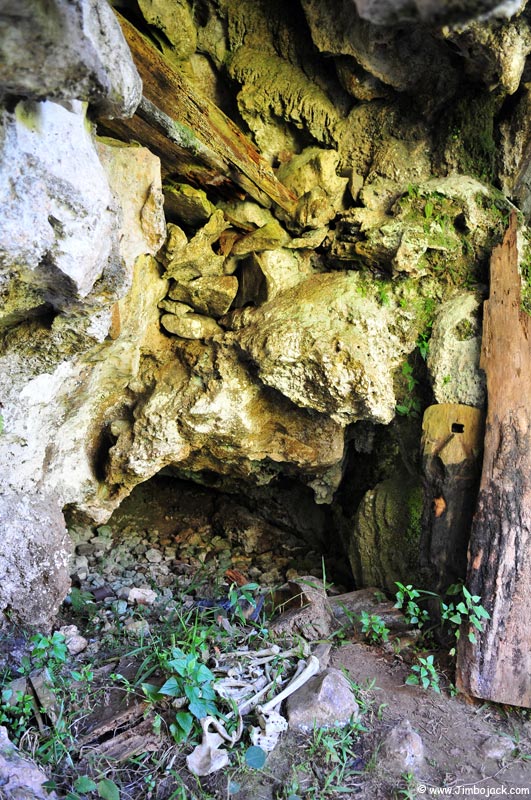
Same coffin
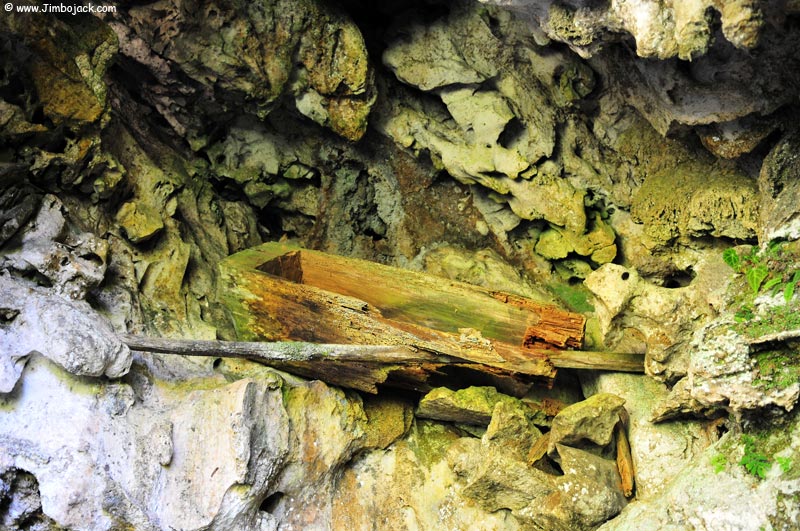
Underground river, Sagada
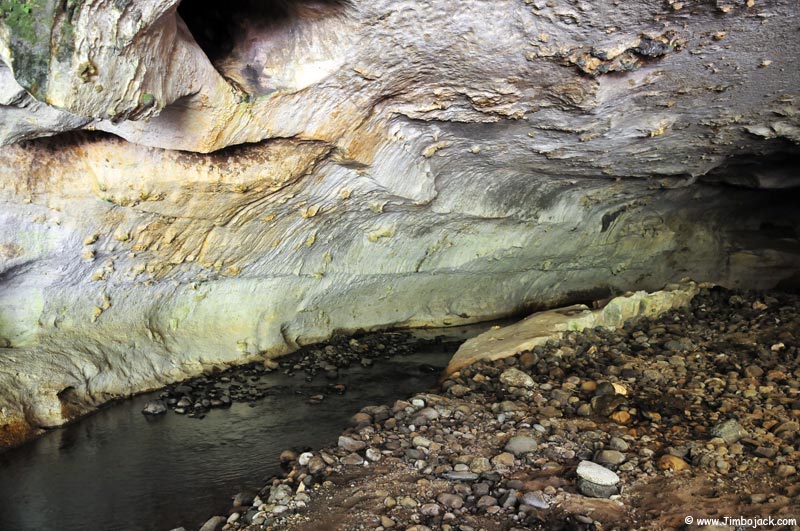
Field, Sagada
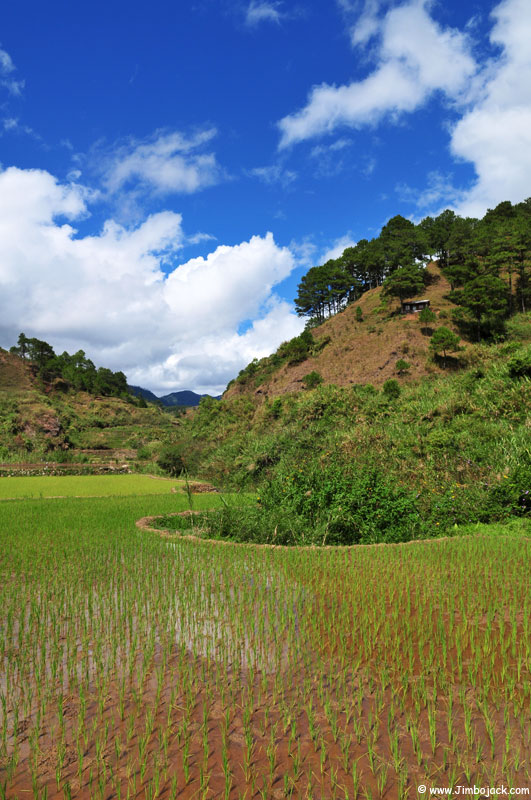
More hanging coffins
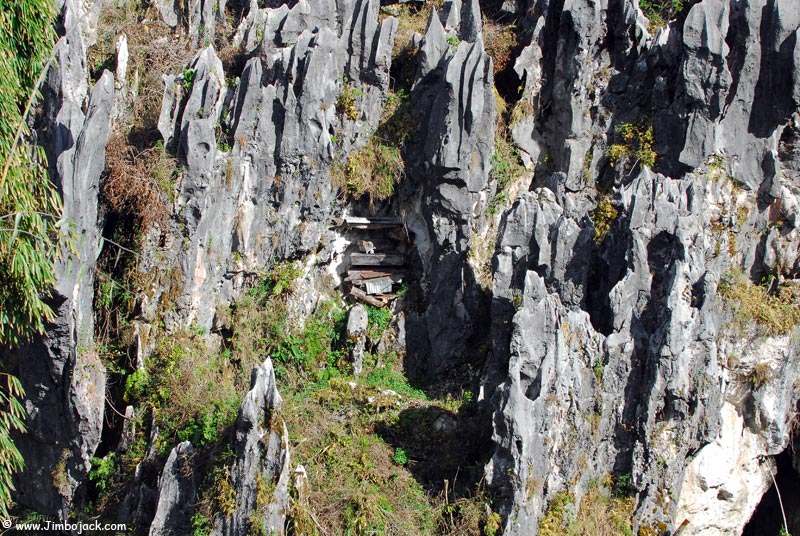
Lumiang burial cave. Coffins here are stacked all the way up to the ceiling, the oldest one is over 500 years old.
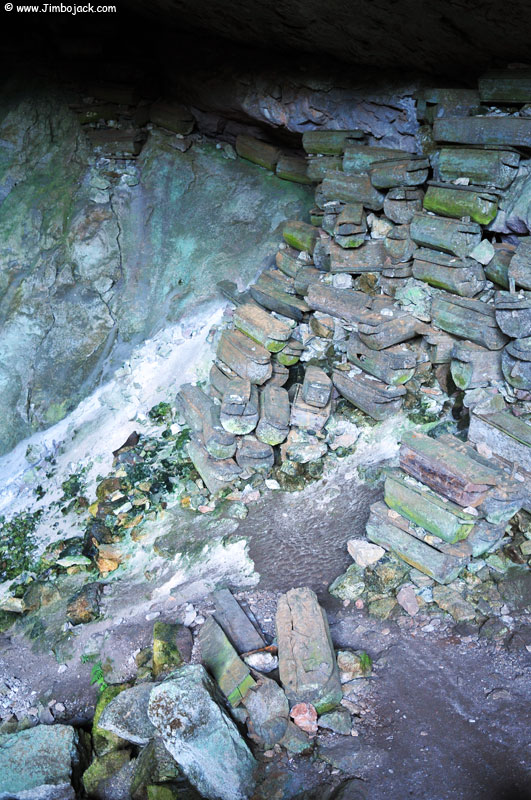
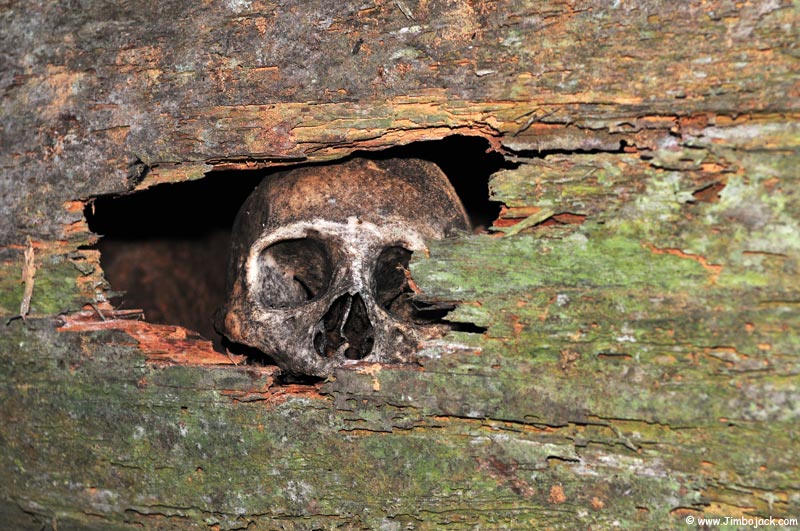
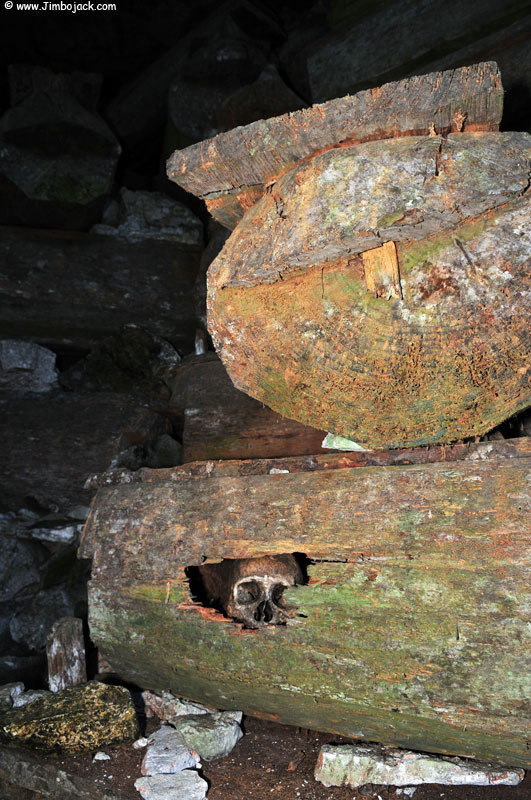
This is a traditional style coffin, made from a single piece of wood plus a lid.
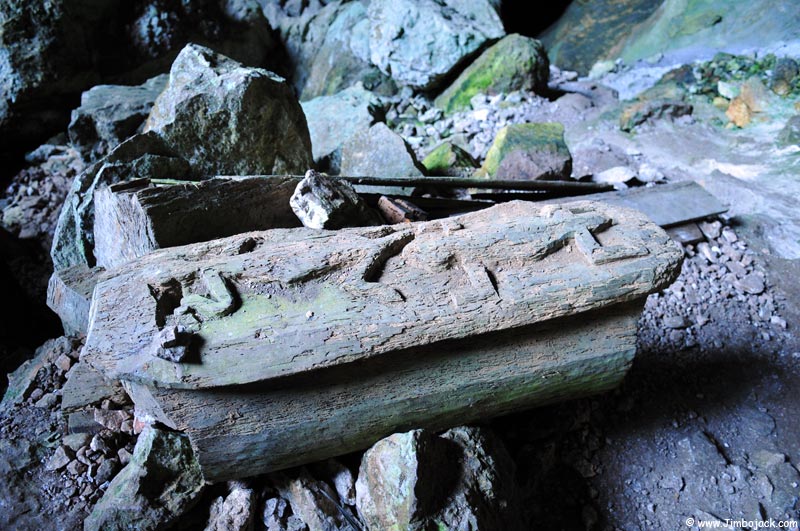
Lumiang and Sumaging caves are linked by an underground passage. It's possible to go through it with a guide, which I did with a Korean guy (Mark) I just randomly met in the cave. His friend decided not to go and he asked me if I wanted to come along in his place, it took me about 10 seconds to decide and 3 minutes later we were off. I could not take my camera since the passages were very tight (a couple of holes we squeezed through were barely wide enough for my shoulders!), Mark took a few pictures with his small P&S camera. The 900 meter distance between the two caves normally takes 4-5 hours underground, there are passages where the underground river comes up to chest level. There is very minimal safety equipment (I did have a helmet though), in places you have to go a few meters up a vertical face with nothing but a rope to assist you. Overall it took us only 2.5 hours, it was one of the highlights of the trip. Unfortunately this picture of my ass is one of the only ones I have
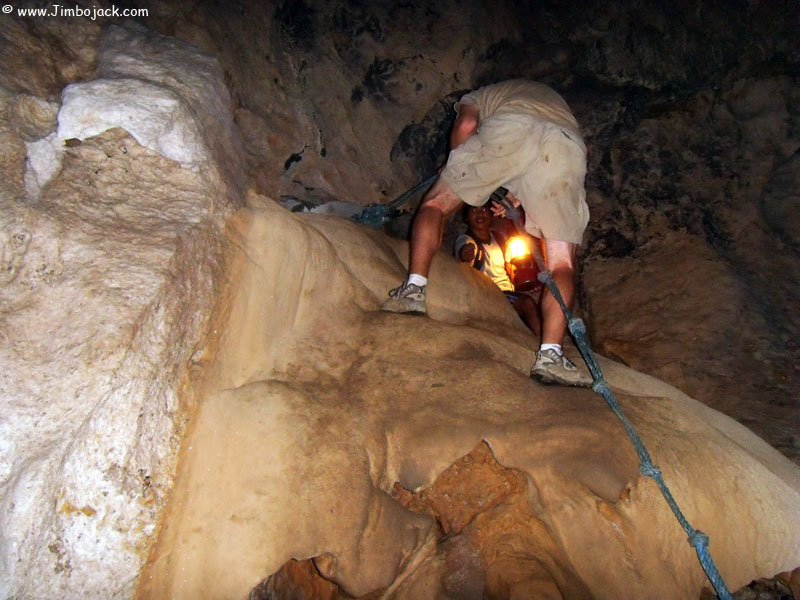
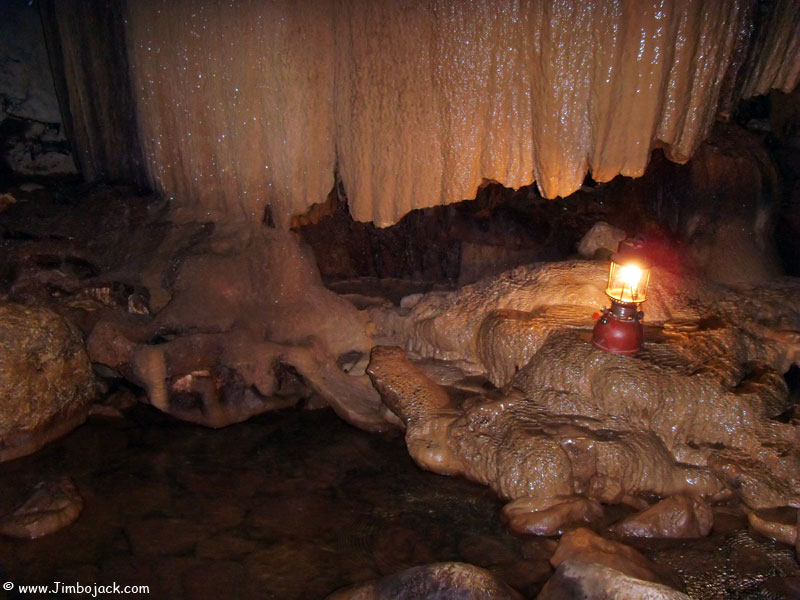
Young rice
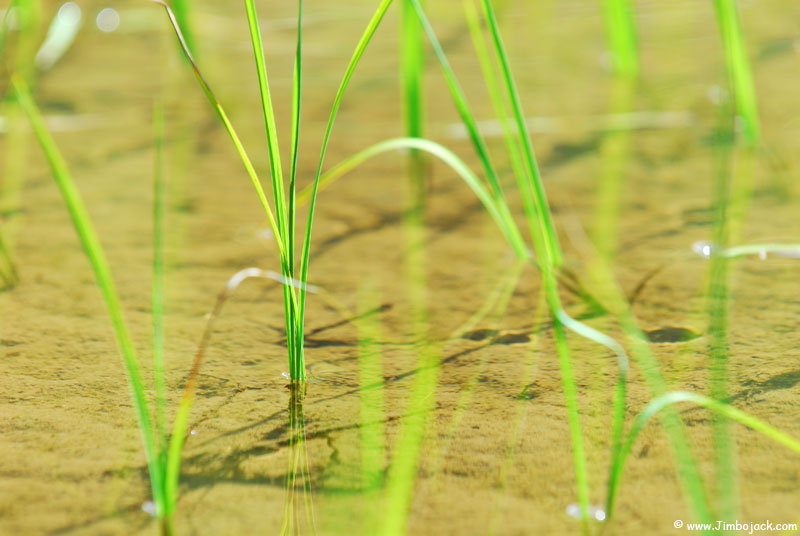
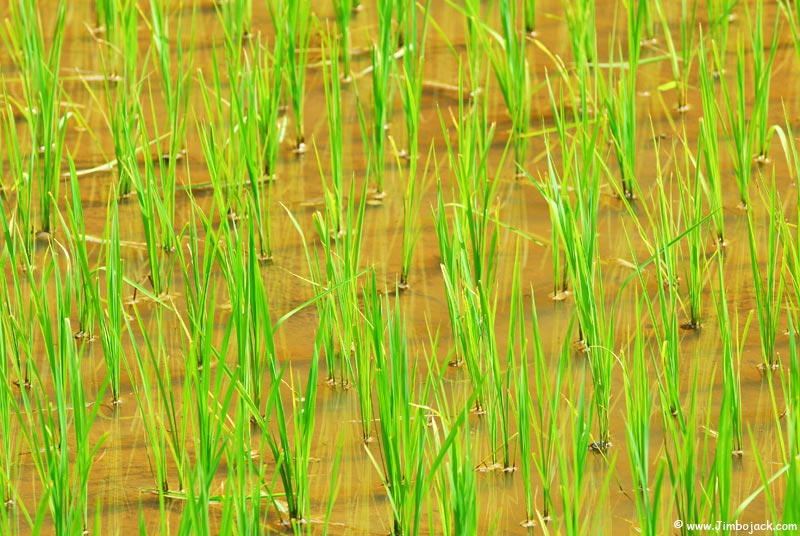
View (through a dirty bus window) of the road to Baguio
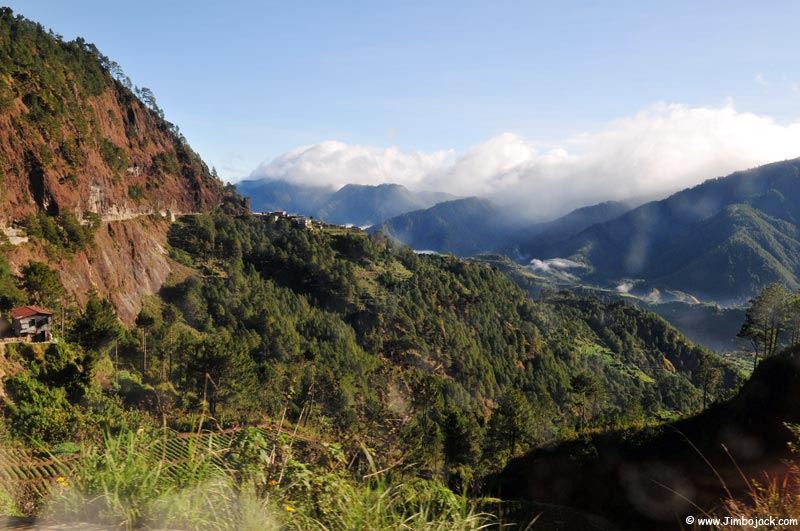
Vigan, a World Heritage city in North Luzon. It is the best preserved Spanish city in the Philippines, during World War II a last minute pullout of the Japanese forces spared it from being totally destroyed by American bombers.
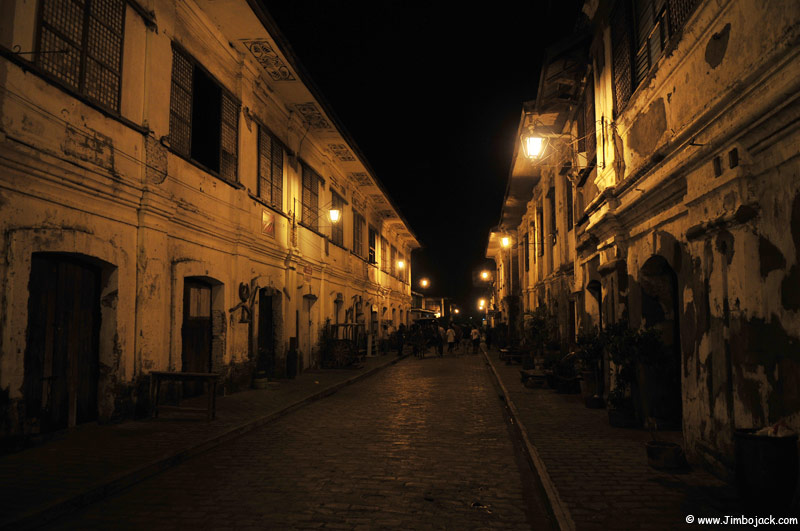
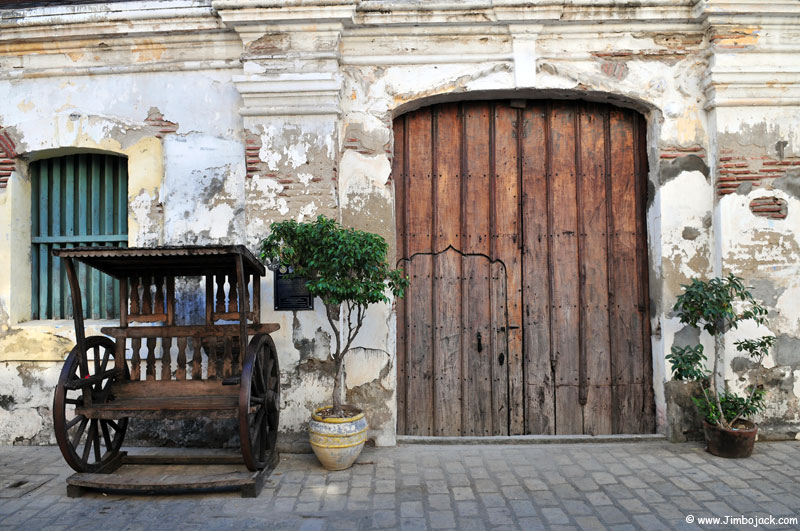
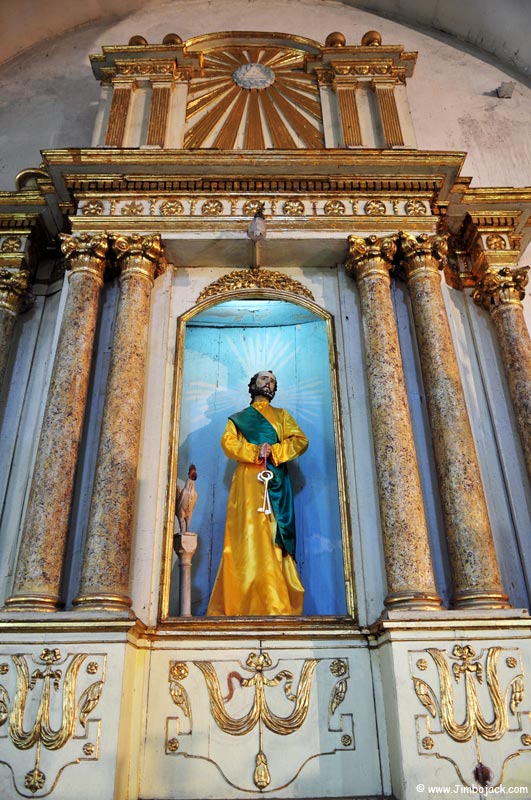
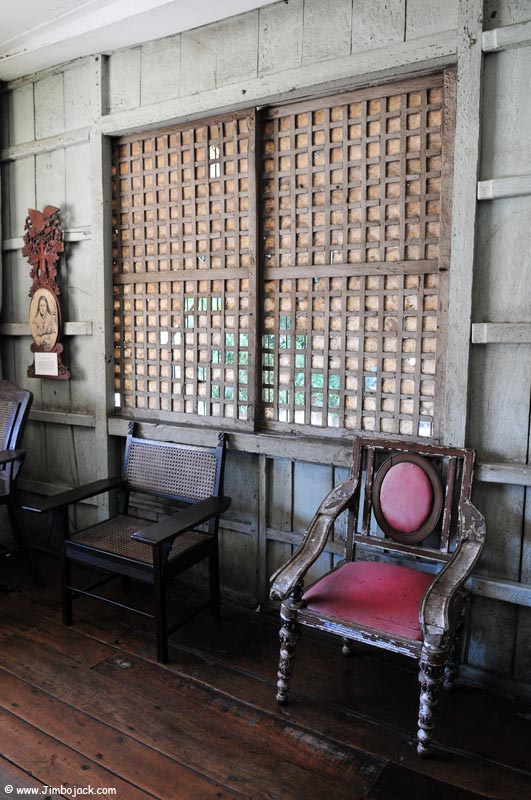
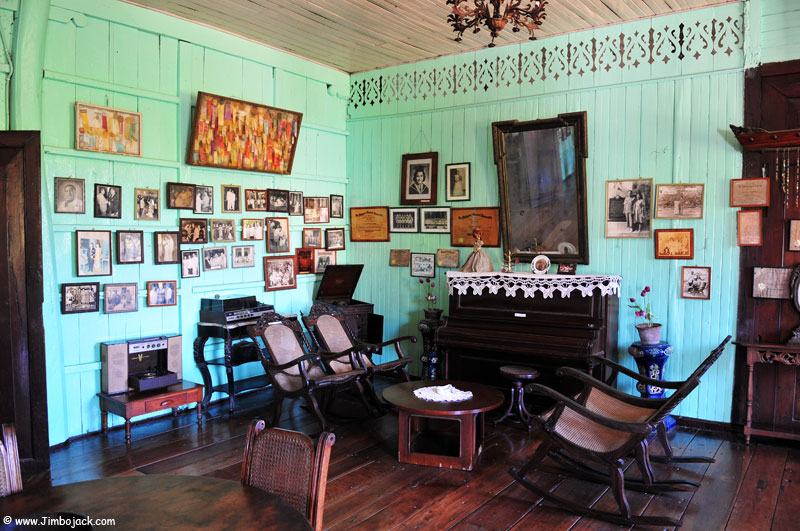
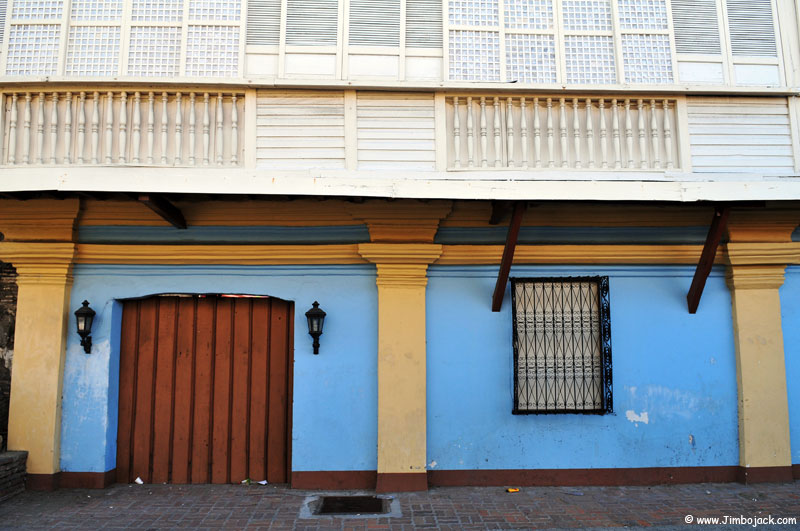
Philippino style Empenadas
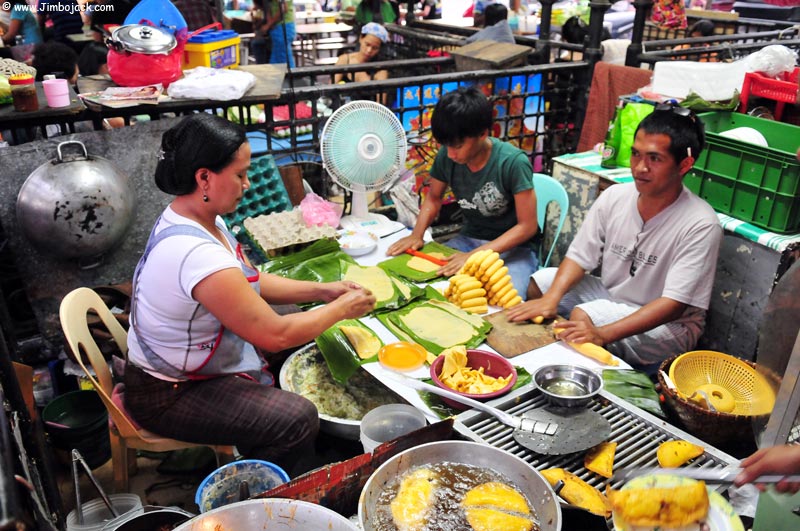
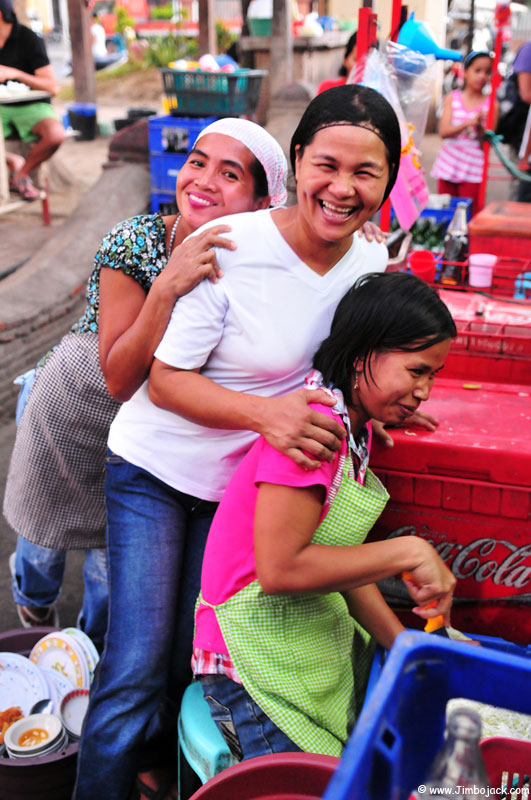
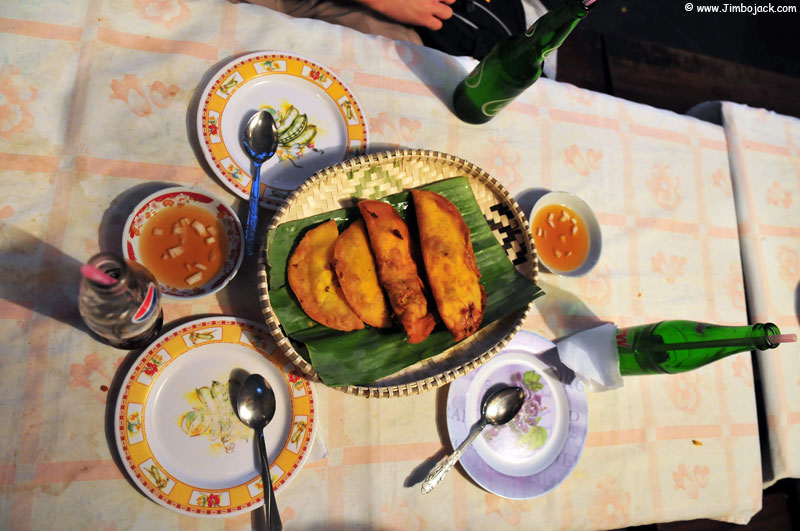
A procession in Vigan
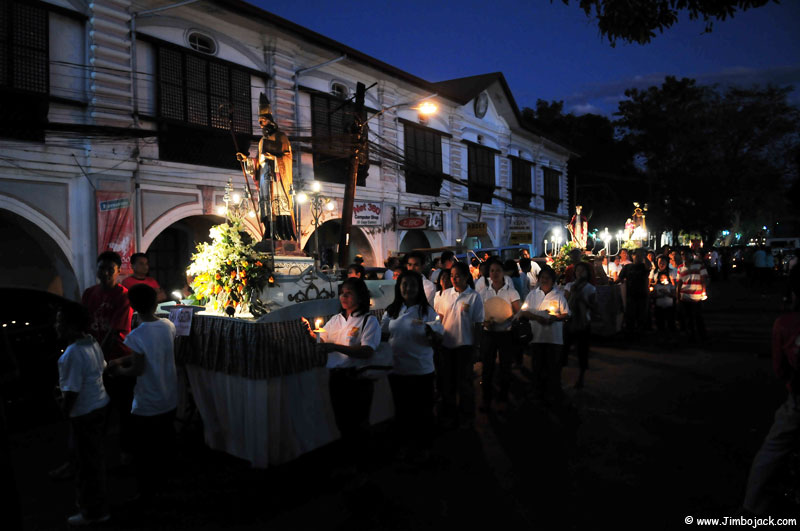
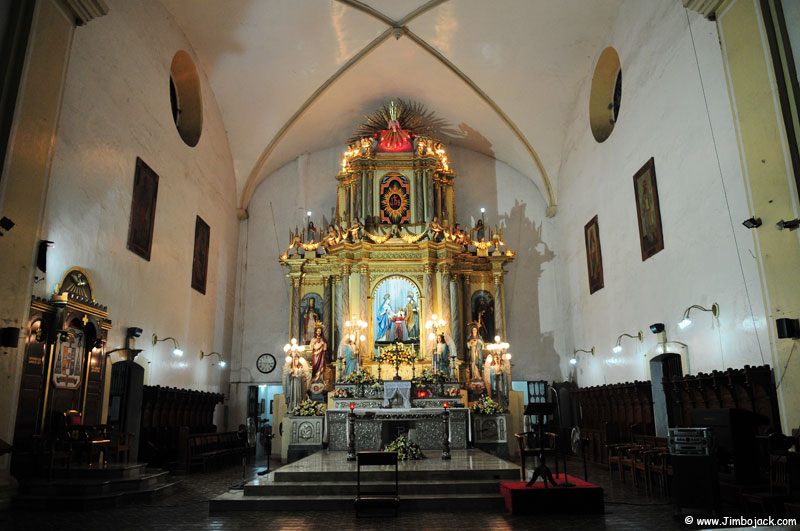
Balut (a local delicacy), a fertilized duck egg. It tasted a lot better then I expected, similar to a normal egg but with a much stronger flavor.
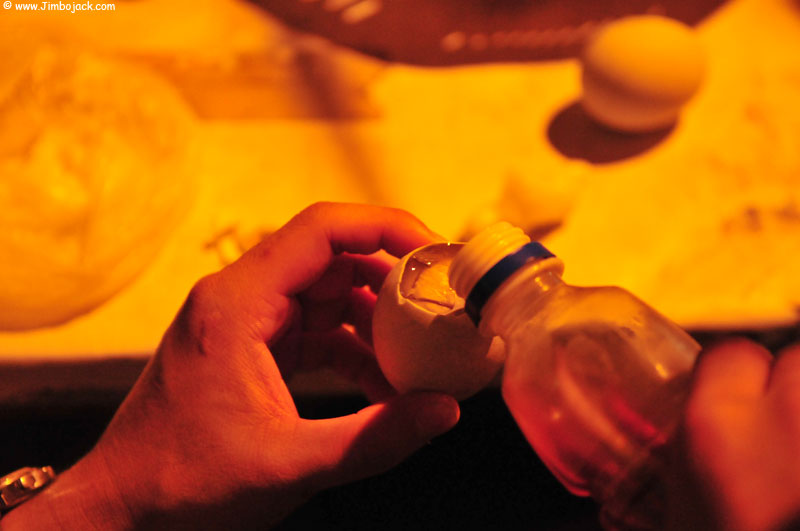
Chinese cemetery, Manila. The Chinese people buried here have all the modern conveniences anybody would want, their tombs have toilets, showers, hot/cold running water, air condition, kitchens, crystal chandeliers, etc.
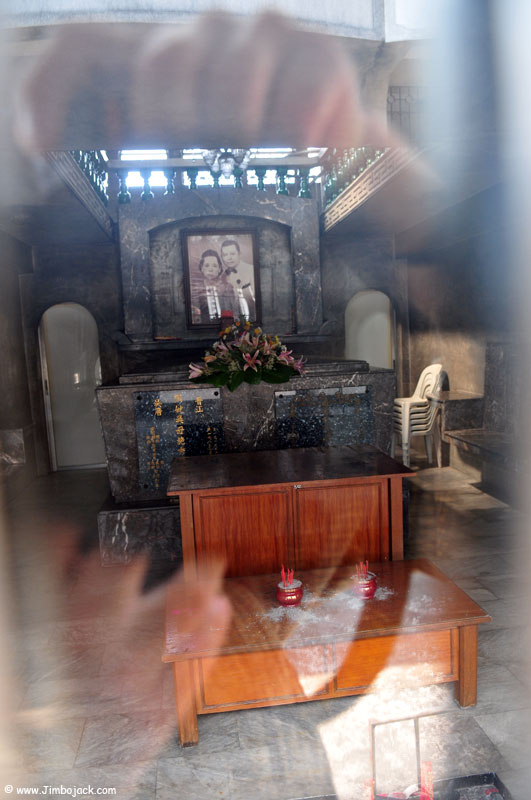
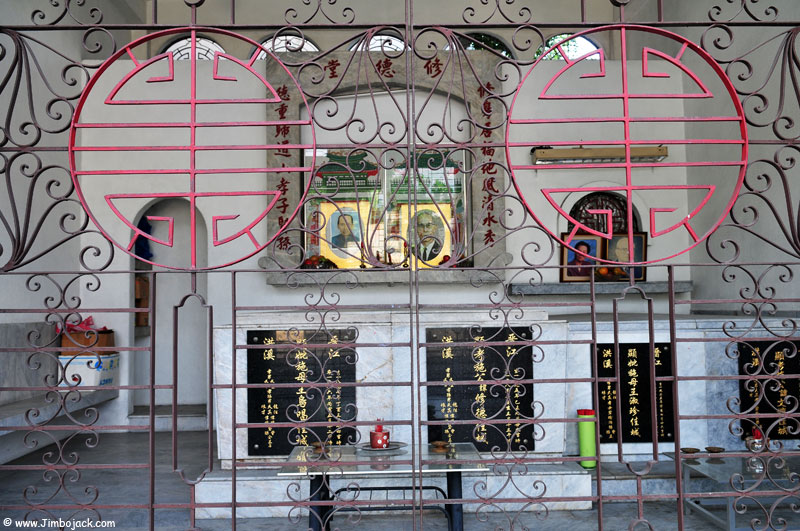
Once again I hope you enjoyed these photos. From now on I will be posting specific groups of photos along with more detailed descriptions. If you would like to see more from these series (I only post a selection here), take a look at my website here:
http://www.jimbojack.com/Southeast_Asia.htm
Part 1
http://dgrin.com/showthread.php?t=120927
Part 2
http://dgrin.com/showthread.php?t=120930
Part 3
http://dgrin.com/showthread.php?t=120933
Philippines
San Augustin Church, Manila.



Local villager in the village of Tam-an (Near Banaue). People living here have a tradition of burying their relatives for 3 years in a coffin, then digging them up and wrapping the bones in traditional blankets. They keep the bones in their house as a form of protection. This man offered to show us his grandfather (for a fee of course), he kept him in a back room in an empty rice sack, inside it was a blanket with the bones.
At first I was very hesitant to do it, the only reason he offered to bring his grandfathers' remains is because he wanted the extra income, so before I started asking him a lot of questions about the tradition. Turns out his grandfather died near the end of World War II ("when the Japanese were here" he said), his remains have been in this house since then. I got the sense from talking to him that this really was important to him. Unfortunately, I have a feeling that to many of the next generation the remains will mostly be looked at as extra income to be gotten from tourists.

Hiking around villages near Banaue, it rained constantly the entire time we were in the area

View from our hotel, Banaue


This was our Jeepney for the trip up to Batad

The road

This driver thought he could go over a mudslide in a minivan, he was wrong, and blocked our way. We had to wait until the tires were changed, after a lot of pushing he decided to back down the road to a place where he could finally turn around.


Trail down to Batad village

Local woman, Batad

Batad

Local Man, Batad

30 Meter tall Tappia waterfall, near Batad village

Batad rice terraces, these are of the stone-walled variety and are believed to be over 2,000 years old. They are muddy and brown since the rice planting doesn't take place until late February or March. We were here at the end of January

Local people, Batad


Our next Jeepney ride was also eventful, problems with the fuel pump meant it took us 7 hours to drive 120 kilometers

Sagada, Nothern Luzon. Unfortunately like the rest of the Philippines, Sagada has been Christianized. Some people do still keep their original animist beliefs, and a kind of a mixture of Animist/Christian traditions is still visible (although the church is working hard to stop it).
According to the traditional beliefs, locals would be buried in coffins placed in caves or hung from the side of cliffs. The oldest coffins in Sagada are believed to be in the Lumiang Burial Cave, and are over 500 years old. Traditional beliefs dictate that nobody should be buried, "instead of the dead carrying the earth, the earth should carry them". Some coffins are hung from cliff faces, the belief is that the spirit will be free to roam around. It is very expensive to be buried in this way, the spirits demand the sacrifice of 21 pigs over the course of a year (the first cannot be eaten by the family), and three times as many chickens. Some elders request to be buried this way, but their christianized children refuse to do so after their death and bury them in a normal cemetery. Unfortunately this tradition is slowly dying out. I will write a lot more about it soon



Hanging coffins, the chairs are placed there for the spirits of the deceased.



Local christian cemetery

This coffin decayed over the years, as a result the bones fell out and are on the ground. Unfortunately some tourists stole the skull. Eventually the family will create a new coffin, place the remains in it and put it back in the cave

Same coffin

Underground river, Sagada

Field, Sagada

More hanging coffins

Lumiang burial cave. Coffins here are stacked all the way up to the ceiling, the oldest one is over 500 years old.



This is a traditional style coffin, made from a single piece of wood plus a lid.

Lumiang and Sumaging caves are linked by an underground passage. It's possible to go through it with a guide, which I did with a Korean guy (Mark) I just randomly met in the cave. His friend decided not to go and he asked me if I wanted to come along in his place, it took me about 10 seconds to decide and 3 minutes later we were off. I could not take my camera since the passages were very tight (a couple of holes we squeezed through were barely wide enough for my shoulders!), Mark took a few pictures with his small P&S camera. The 900 meter distance between the two caves normally takes 4-5 hours underground, there are passages where the underground river comes up to chest level. There is very minimal safety equipment (I did have a helmet though), in places you have to go a few meters up a vertical face with nothing but a rope to assist you. Overall it took us only 2.5 hours, it was one of the highlights of the trip. Unfortunately this picture of my ass is one of the only ones I have


Young rice


View (through a dirty bus window) of the road to Baguio

Vigan, a World Heritage city in North Luzon. It is the best preserved Spanish city in the Philippines, during World War II a last minute pullout of the Japanese forces spared it from being totally destroyed by American bombers.






Philippino style Empenadas



A procession in Vigan


Balut (a local delicacy), a fertilized duck egg. It tasted a lot better then I expected, similar to a normal egg but with a much stronger flavor.

Chinese cemetery, Manila. The Chinese people buried here have all the modern conveniences anybody would want, their tombs have toilets, showers, hot/cold running water, air condition, kitchens, crystal chandeliers, etc.


Once again I hope you enjoyed these photos. From now on I will be posting specific groups of photos along with more detailed descriptions. If you would like to see more from these series (I only post a selection here), take a look at my website here:
http://www.jimbojack.com/Southeast_Asia.htm
Phillip
Just back from Europe, Eastern Turkey, Iraq and Iran, new photos coming soon!
Over 100 Countries, thousands of pictures, one Website (being redesigned at the moment)
www.Jimbojack.com
Just back from Europe, Eastern Turkey, Iraq and Iran, new photos coming soon!
Over 100 Countries, thousands of pictures, one Website (being redesigned at the moment)
www.Jimbojack.com
0
Comments
What a stunning series of images, and so well done.
For someone like myself that so far haven't made it to that part of the World, Yet:D it's a wonderful look, and such an interesting perspective on the images, made me feel like I was standing right beside you:D.
Thanks for sharing all of these, it's been great seeing all of them.
Kindest Regards,
Craig
Craig
Burleson, Texas